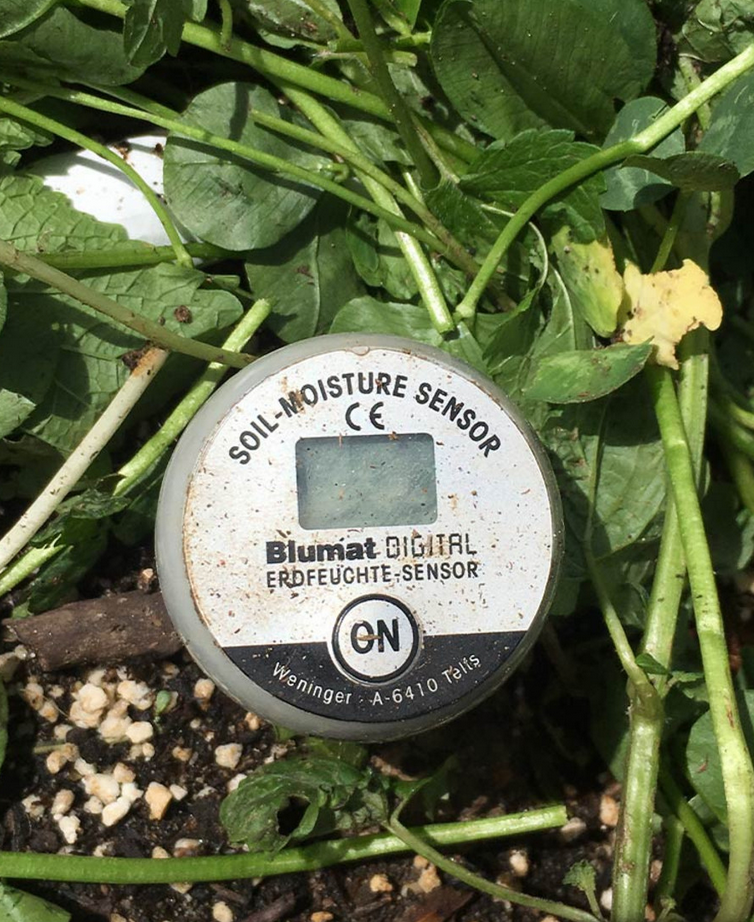The Science Behind Moisture Meters: How They Work and Why They're Essential
The Science Behind Moisture Meters: How They Work and Why They're Essential
Blog Article
The Ultimate Overview to Moisture Meters: A Comprehensive Summary and Exactly How They Can Conserve You Cash
In the realm of building maintenance, construction, and various industries, the importance of properly gauging moisture degrees can not be overemphasized. Moisture meters offer as crucial tools in discovering and monitoring moisture material in products, helping in protecting against expensive problems and ensuring the high quality of products. Understanding the nuances of various sorts of moisture meters, their applications, and the potential cost-saving benefits they offer can be a game-changer for experts and businesses alike. Discovering just how these tools can not just improve processes however likewise contribute to financial cost savings is a trip worth getting started on.
Kinds Of Moisture Meters
Various kinds of wetness meters are available for different applications in different markets. One usual type is the pin-type moisture meter, which determines the electrical resistance between 2 pins inserted right into a material. This type appropriates for wood, drywall, and various other building products. Pinless moisture meters, on the other hand, use electro-magnetic sensor plates to check a larger area without causing damage to the product's surface area. These meters are perfect for rapidly examining dampness degrees in huge locations such as floors and walls.
Furthermore, there are additionally specialized dampness meters developed for particular materials like soil, hay, or grain. These meters give accurate wetness readings tailored to the special buildings of the material being evaluated. Infrared moisture meters determine the thermal residential properties of a material to determine its moisture content non-invasively, making them valuable for applications where pin or pinless meters might not appropriate. Understanding the various kinds of moisture meters available can assist markets pick one of the most proper tool for their certain moisture measurement requirements.

Benefits of Making Use Of Moisture Meters

Moreover, using dampness meters can bring about boosted power effectiveness. By identifying locations with high wetness degrees, such as leakages or bad insulation, modifications can be made to enhance power conservation and minimize energy costs. In agricultural setups, moisture meters play a vital function in enhancing crop returns by enabling farmers to check soil wetness degrees and make notified watering decisions. Generally, the advantages of using wetness meters extend across various markets, offering cost-efficient options and promoting much better high quality control techniques.
Just How to Pick the Right Moisture Meter
Selecting the suitable dampness meter includes considering vital factors such as product compatibility, measurement range, and calibration precision. When selecting a wetness meter, it's essential to make certain that the meter appropriates for the certain material you will certainly be screening. Different products have varying electrical properties that can affect wetness readings, so choosing a meter developed for your product is vital for accurate results. Additionally, consider the measurement array of the dampness meter. Guarantee that the meter can find moisture degrees within the variety needed for your applications. Calibration accuracy is one more crucial factor to keep in mind (Moisture Meter). Choose a dampness meter with trusted calibration to guarantee specific and consistent analyses. Some meters may require regular calibration adjustments, so recognizing the calibration procedure is very important. By very carefully assessing these factors, you can choose a wetness meter that meets your demands and supplies precise moisture dimensions for your projects.
Correct Techniques for Moisture Meter Use
To ensure precise moisture readings and make best use of the efficiency of a wetness meter, employing proper strategies is crucial. When using a pin-type wetness meter, put the pins or probes right into the material being tested up until they make complete contact. By following these correct techniques, individuals can depend on their moisture meter to provide credible moisture levels, assisting in preventing pricey damage or making sure high quality check it out in various applications.

Price Cost Savings Via Moisture Meter Applications
Just how can the tactical utilization of dampness meters result in significant cost savings across numerous markets? Moisture meters play an important duty in price savings by stopping potential damages and making sure quality assurance in different fields. In the agriculture market, moisture meters aid in identifying the optimum time for gathering plants, preventing excess or over-drying wetness that can impact the final product's top quality. This exact monitoring aids farmers avoid unnecessary losses and optimize their return.

Additionally, in the food processing industry, moisture meters are essential for monitoring product top quality and ensuring compliance with security laws. By accurately measuring moisture material in foodstuff, producers can prevent spoilage, maintain freshness, and decrease waste, causing substantial expense financial savings. On the whole, the strategic application of moisture meters is a valuable financial investment that can lead to substantial expense decreases and enhanced effectiveness across various see page markets.
Final Thought
In verdict, wetness meters are useful tools for detecting and measuring dampness degrees in numerous materials. By making use of the appropriate wetness meter and adhering to proper methods, users can properly stop pricey problems caused by excess wetness.
Moisture meters serve as crucial devices in discovering and keeping track of moisture material in materials, aiding in avoiding costly problems and making certain the quality of items. Infrared wetness meters determine the thermal residential or commercial properties of a material to determine its moisture material non-invasively, making them official source valuable for applications where pin or pinless meters might not be ideal.Wetness meters provide very useful advantages in accurately keeping an eye on and examining wetness levels in diverse materials and atmospheres. In farming settings, moisture meters play a critical duty in optimizing crop yields by enabling farmers to keep track of soil wetness levels and make educated irrigation decisions.In conclusion, wetness meters are important tools for discovering and measuring dampness levels in numerous products.
Report this page